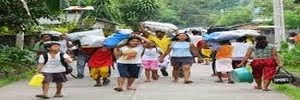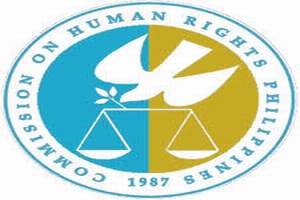
From the Website of United Nations
links https://news.un.org/en/story/2023/03/1134327
Compromise is crucial in search for peace for sake of all Syrians, urges UN negotiator
The
Syrian conflict will only be resolved if all parties involved in it are
prepared to make the kind of compromises on humanitarian grounds that
followed last month’s earthquake disaster, UN negotiator Geir Pedersen said on Wednesday.
In an appeal for greater urgency to resolve the grinding war which erupted 12 years ago this month, which has killed hundreds of thousands and displaced millions, Mr. Pedersen insisted that he would not accept continued inaction on the UN-led push for the Syrian Government and Opposition to agree on a new Syrian Constitution.
Engagement needed
“We need a revived, pragmatic, result-oriented political process, in which all key actors engage to unlock opportunities in the earthquake-affected areas and to unlock wider possibilities too,” the Special Envoy said, while maintaining that for well over a decade, there had been little willingness both within the war-torn country and internationally to engage with the UN’s efforts to secure a peaceful future for Syrians.
Despite these enduring obstacles, the UN negotiator emphasized how the 6 February earthquake disaster that affected northwest Syria, killing around 6,000 people, had shifted mindsets and long-held geopolitical positions that have stood in the way of peace.
This was notably the case with regard to securing greater international aid access into the largely opposition-held region, and the easing of sanctions on the Syrian Government, Mr. Pedersen told journalists.

In an appeal for greater urgency to resolve the grinding war which erupted 12 years ago this month, which has killed hundreds of thousands and displaced millions, Mr. Pedersen insisted that he would not accept continued inaction on the UN-led push for the Syrian Government and Opposition to agree on a new Syrian Constitution.
Engagement needed
“We need a revived, pragmatic, result-oriented political process, in which all key actors engage to unlock opportunities in the earthquake-affected areas and to unlock wider possibilities too,” the Special Envoy said, while maintaining that for well over a decade, there had been little willingness both within the war-torn country and internationally to engage with the UN’s efforts to secure a peaceful future for Syrians.
Despite these enduring obstacles, the UN negotiator emphasized how the 6 February earthquake disaster that affected northwest Syria, killing around 6,000 people, had shifted mindsets and long-held geopolitical positions that have stood in the way of peace.
This was notably the case with regard to securing greater international aid access into the largely opposition-held region, and the easing of sanctions on the Syrian Government, Mr. Pedersen told journalists.

Prospect of progress
“We have actually seen in the aftermath of the earthquakes, humanitarian steps from all sides that have moved beyond previous positions, even if temporarily,” Mr. Pedersen said. “A month ago, there was no prospect of the opening of more border crossings or of moves to ease sanctions in a concrete way. We have seen both moves now.”
New approach
Acknowledging that the geopolitical fallout from Russia’s invasion of Ukraine had complicated the UN’s efforts to convene a ninth meeting of the Constitutional Committee in Geneva, the Special Envoy explained that he had continued to push for a resumption of meetings in the Swiss city.
“As long as the Russians do not want to come to Geneva, the Syrian Government do not want to come to Geneva,” he said.
At the same time, a new diplomatic strategy might bear fruit, the Special Envoy said, flagging a “step-for-step” initiative that would involve the Syrian Government and the international community – “the Americans, the Europeans and the Arabs” stating “what they are prepared to do”, so that progress can be made “in a way that is verifiable”.
“No one existing actor or group of actors can resolve this conflict for long,” Mr. Pedersen continued. “The Government cannot, the Opposition cannot, the Astana players cannot, the Arab region alone cannot, and the Western players alone cannot solve this conflict…The earthquake in itself has shown that positive steps are possible if there is a political will.”
Acknowledging that the geopolitical fallout from Russia’s invasion of Ukraine had complicated the UN’s efforts to convene a ninth meeting of the Constitutional Committee in Geneva, the Special Envoy explained that he had continued to push for a resumption of meetings in the Swiss city.
“As long as the Russians do not want to come to Geneva, the Syrian Government do not want to come to Geneva,” he said.
At the same time, a new diplomatic strategy might bear fruit, the Special Envoy said, flagging a “step-for-step” initiative that would involve the Syrian Government and the international community – “the Americans, the Europeans and the Arabs” stating “what they are prepared to do”, so that progress can be made “in a way that is verifiable”.
“No one existing actor or group of actors can resolve this conflict for long,” Mr. Pedersen continued. “The Government cannot, the Opposition cannot, the Astana players cannot, the Arab region alone cannot, and the Western players alone cannot solve this conflict…The earthquake in itself has shown that positive steps are possible if there is a political will.”
UN Website
links
OTHER HUMAN RIGHTS PROMOTIONS WEBSITES
-----------------------------------------------------------------------------------
PROTECTION AND PROMOTION OF HUMAN RIGHTS
------------------------------------------------------------------------------------
-----------------------------------------------------------
-------------------------------------------


























































0 comments:
Post a Comment